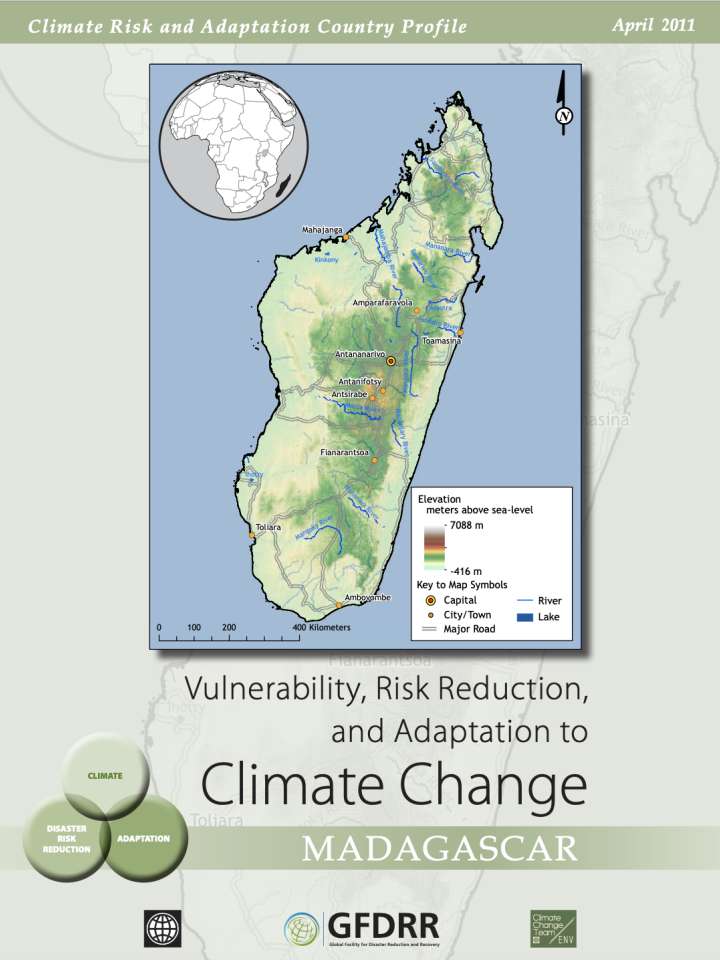Climate risk and adaptation country profile: Vulnerability, risk reduction, and adaptation to climate change: Madagascar
This paper profiles the vulnerability, risk reduction, and adaptation to climate change of Madagascar. Madagascar is a signatory to the United Nations Framework Convention on Climate Change (UNFCCC) and the Kyoto Protocol. The country is also a signatory to the United Nations Convention to Combat Desertification and the Convention on Biological Diversity. In 2006, Madagascar’s National Adaptation Program of Action (NAPA) laid the groundwork for a national plan of action on climate change and identified several poverty and economic growth criteria to be used in the evaluation and prioritization of proposed new projects. Key economic sectors and proposed adaptation strategies for these include:
- Coastal areas, including rehabilitation and/or construction of dikes and dams and adoption of anti-erosive techniques of defense and conservation of the soil;
- Agriculture and forestry, including support for the intensification of crop and livestock production and reforestation of rural areas;
- Water resource management, including the installation of light structure and/or reinforcement of the decentralized Weather Service and the establishment and reactivation of associations in water management;
- Infrastructure, including the development, communication, and application of standards in construction design to ensure resistance to important weather upheavals;
- Health, including the research on the causes of diseases and adoption of appropriate measures to be undertaken during the transmission period
Explore further
